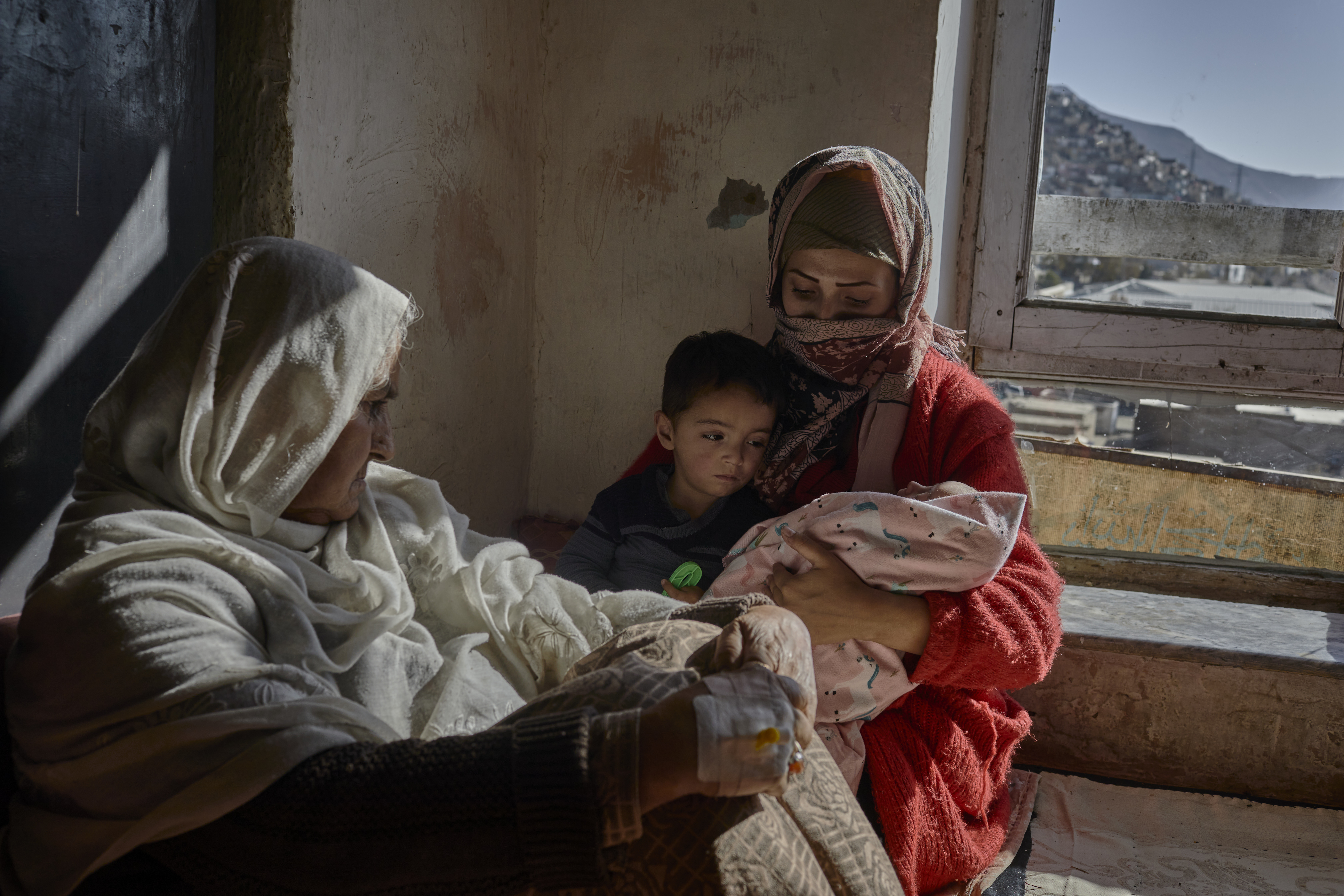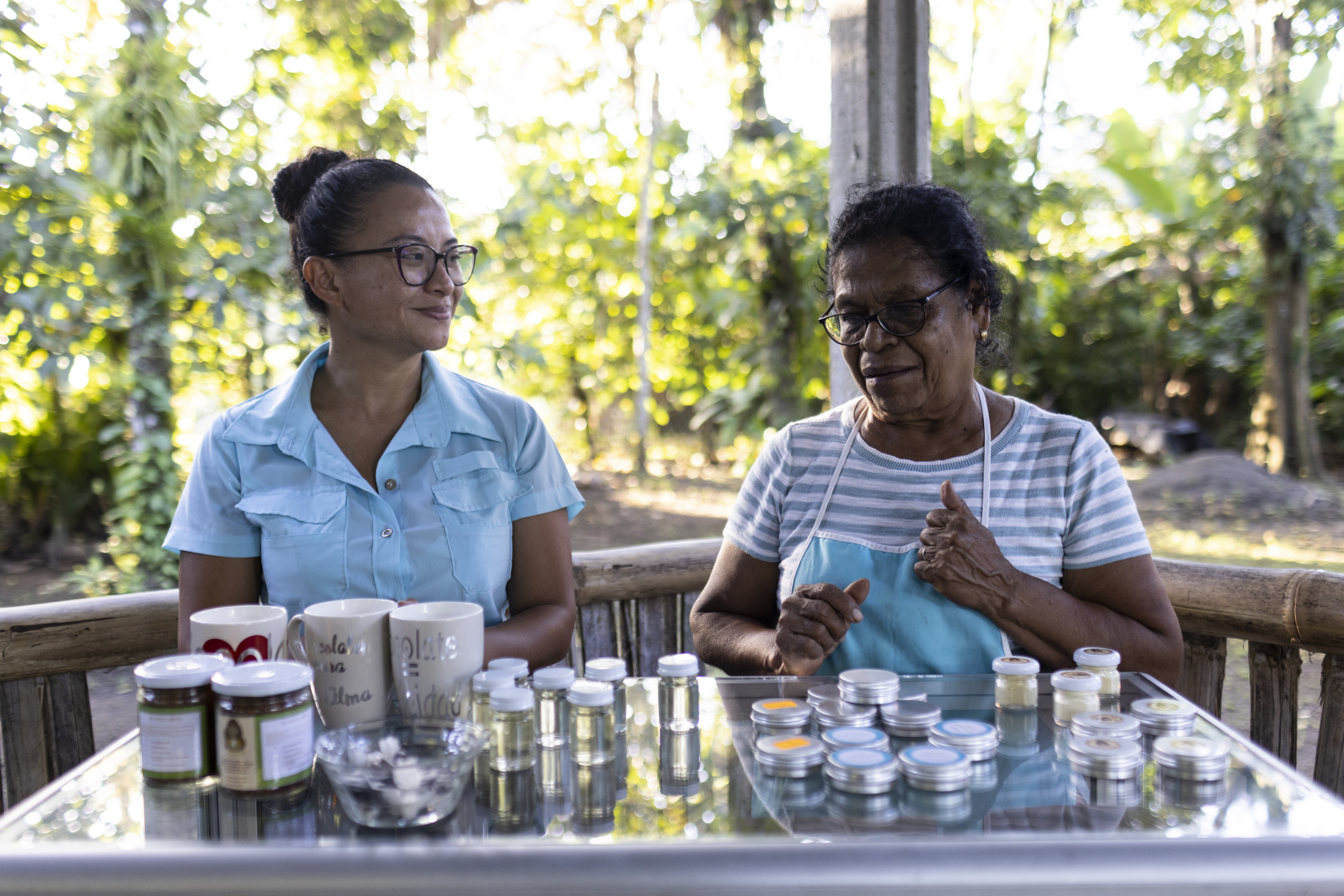Security, women's views crucial as UNHCR paves way for south Sudan returns
Security, women's views crucial as UNHCR paves way for south Sudan returns

NAIROBI, March 18 (UNHCR) - A high-level UNHCR team is to travel to Rumbek, south Sudan, on Friday to advance plans to open the refugee agency's first office there in 14 years.
"We need a substantial, immediate operational presence in the south," said Dennis McNamara, UNHCR's Inspector General, who is leading a four-person team. Encouraged by progress in peace talks between the Khartoum government and the Sudanese People's Liberation Movement, the UN refugee agency has prepared a repatriation plan that foresees the return of 150,000 refugees from neighbouring countries during the first 18 months of peace.
UNHCR is making plans to open offices in Rumbek in the coming weeks, to be followed by offices in Yei and Yambio. Logistics, engineering and security teams are now in south Sudan's Equatoria region, assessing the routes and other infrastructure that would be used for any convoys bringing refugees home. Damage to infrastructure in the south has been considerable during 20 years of civil war.
During two weeks of meeting Sudanese refugees in Uganda, Democratic Republic of the Congo, and Kenya (in addition to visits to Khartoum and south Sudan), McNamara's team heard that refugees will be willing to return to their war-scarred homeland only if they see real security on the ground after two decades of conflict.
"Refugees unanimously said they want to return home, but they are concerned about their physical safety on the return and once they get home," McNamara said during a brief stopover in Nairobi.
Refugees emphasised that their first concerns were protection and security during and after their return, including from armed groups and militias. "We want to go home, but only when we are sure it is really safe on the ground," McNamara quoted one of the leaders as saying. The leader added: "We have learnt from 1972 that peace agreements have to be respected and implemented if we are going to be able to go home permanently."
Refugees also stressed the priority they attached to continued education for their children, as well as other basic services including health, water and income-generating activities.
McNamara said he and his team were especially interested in the views and concerns of Sudanese women. Representatives from Sudanese women's organisations told the UNHCR officials they are very concerned about security in south Sudan, particularly the presence of militias, as well as landmines and small arms. Schooling for their children is a top priority and they called for a major initiative to improve literacy among women. They said they would need temporary shelters once they return home, and help in finding ways to earn a living.
"UNHCR is very concerned to make sure women's issues are at the centre of the repatriation and return planning," McNamara said. "It's the women who are going to take the families back. It's the women who are the peace builders, as we know from many other conflicts. It's the women who will generate income, promote education, and it's the women who will insist on disarming the militias. For UNHCR, women's role, rights and responsibilities are genuinely a centre point for our concerns."
Sudanese women told McNamara's team that they have been excluded both from the peace talks now going on in the Kenyan town of Naivasha, and from all repatriation and reintegration plans now being drawn up by the SPLM's humanitarian wing, the Sudan Relief and Rehabilitation Commission (SRRC). SRRC is to work together with UNHCR to bring home and reintegrate refugees from neighbouring countries, and to resettle people displaced within Sudan by two decades of war.
Some refugee women said they are concerned about their status inside Sudan, particularly if they have married foreign men during their years abroad. "Women will need protection by the rule of law and civil justice inside Sudan," McNamara said.
If peace talks come to fruition, the return of Sudanese refugees could be one of UNHCR's biggest repatriation movements this year. It is estimated that the war has uprooted more than three million people inside Sudan, while a further 600,000 are living in neighbouring states as refugees. The largest numbers are in Uganda (223,000), Ethiopia (88,000) the Democratic Republic of the Congo (69,000), and Kenya (60,000).
The Naivasha talks do not cover a separate war that has flared up in the western Sudan region of Darfur. Some 110,000 Darfur refugees now in Chad would not be part of the repatriation plan UNHCR has drawn up for returns to the south.








